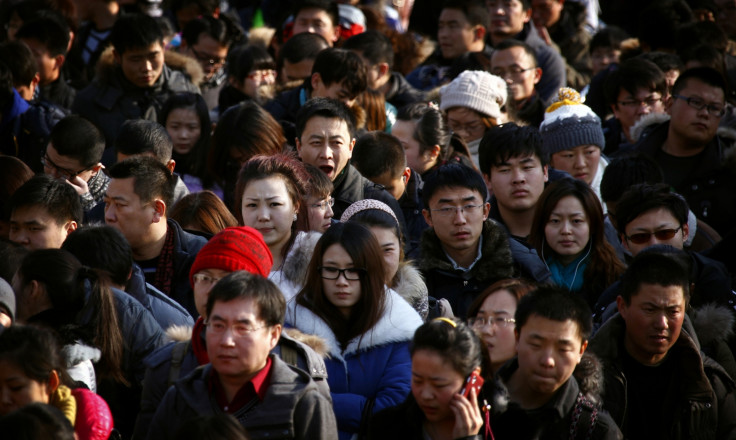Golden Week: Why the Chinese Prefer to Spend Millions in London Than in Asia

Nothing demonstrates China's growing emergence as a fully paid up member of the international consumer economy quite like Golden Week.
The autumnal holiday commences each year at the start of October, generously providing China's bustling, industrious society with seven whole days off work.
Founded to observe the People's Republic of China's (PRC) National Day in 1999, Golden Week was primarily intended to help grow domestic tourism, improve standards of living, and allow people to make long-distance family visits.
Spending Shifts to the West
More than 120 million individual trips are now embarked upon each year, and a growing number of them are abroad.
This week, approximately 200,000 intrepid and brand-hungry Chinese consumers are expected to flock to London – the retail capital of the UK – in search of designer goods.
Worldpay UK reports that last year Golden Week drove a whopping 20.7% increase in spending, and an incremental 70,000 transactions took place in London compared to the previous week.
Golden Week provides China's wealthy citizens an opportunity to indulge their growing taste for designer goods. After decades of austerity, a pent up demand for high status items has been unleashed in recent years.
One shopping centre in Yichang laid 606 real gold bars worth £20m (€35.5m, $32.2m) under a glass floor to entice customers this year – walking on gold is considered lucky.
UK retailers don't have to go quite this far, but they would be foolish to ignore the opportunity presented as it has been estimated that each Chinese visitor spends around £8,000.
Payday for the UK
For UK retailers, and hoteliers, Golden Week provides a vital injection of cash to fill the lull between summer sales and Christmas trading. Notable beneficiaries include non-indigenous luxury brands such as Louis Vuitton, Dior, and Prada, as well as elite British establishments like Selfridges, Harrods and Harvey Nichols - all of whom have been known to go the extra mile to help Chinese visitors part with their money more easily.
Common tactics include displaying Chinese signage, deploying extra Mandarin speakers, and giving Chinese-friendly products prominence, such as 'lucky' red garments and accessories crafted from popular animal hides.
Although London is known internationally for its progressive retail experience, other cities such as Seoul, New York, Hong Kong and Paris might dispute its claims of offering The World's Best Shopping Experience.
So, what is London's appeal?Is it our infamous cuisine? Our notoriously dreary weather? A shared love of queuing? Our famous sense of irony? Perhaps not.
For the Love of London
London offers Chinese consumers an opportunity to pick up deluxe items such as handbags and watches without taking the 30% hit of stringent Chinese taxes, aided by a favourable exchange rate. The most image conscious consumers can also snap up exclusive products not on display in the Chinese outposts of some brands, thereby boosting their sense of individuality and gaining prestige.
London is recognised as one of the world's most international cities, with more than 300 languages spoken by residents, and is home to the world's most flown to airport, Heathrow, but it can be tough for Chinese citizens to overcome a tricky visa application process to get to London and those who come here really want to come.
In some ways, it gives the UK a scarcity value – the more difficult it is to access, the more appealing it becomes.
The Chinese middle class has a great affection for Britishness. There is a deep appreciation of the history and heritage of the country, with genuine respect, perhaps even envy, for the British Royal Family, as well as more modern signifiers of Britishness, such as designers like Paul Smith and Jasper Conran, plus cultural icons such as David Beckham and Prince George.
A survey of Chinese consumers in Shanghai, Beijing and those that travel thousands of miles to the UK to shop found that 'Britishness' was an important reason they chose to buy brands like Johnnie Walker, Aston Martin, Rolls Royce, Burberry and Gieves & Hawkes.
The study by Professor Qing Wang of Warwick Business School found that Britain's cultural capital represents a number of unique qualities that is difficult for competitors in France, Italy or the US to imitate.
It's always interesting to see ourselves as others see us. Chinese visitors have a positive and unique expectation of London and Britain.
The retail opportunity of Golden Week emphasises the need to present to visitors the characterful, modern meets-traditional British experience that they hope for. It would be foolish not to meet or exceed their high expectations. The Challenge to retailers is to optimise the experience for the visitors that we do get rather than mourn the loss of those who are unable to make the trip due to visa difficulties.
Our Chinese guests can choose anywhere in the world to spend their Golden Week bounty. The fact that they choose to spend it in London is a positive indication of the city's status as a global retail destination, and of the perennial, if quirky appeal to Brand UK.
Jamie King is the head of RX planning at Cheil London.
© Copyright IBTimes 2024. All rights reserved.





